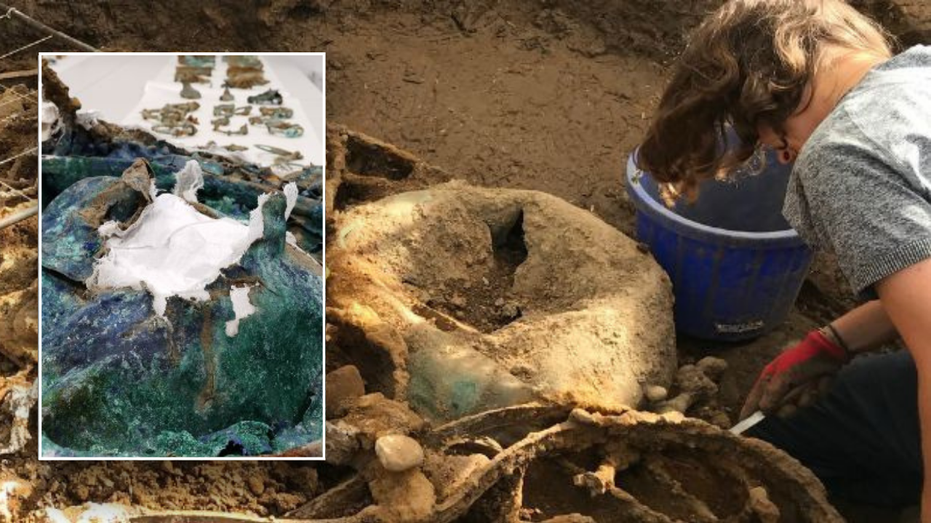- by travelandtourworld
- 30 Mar 2025
Metal detectorist unwittingly discovers strange hoard of hundreds of ancient objects: 'Rarely seen'
British archaeologists recently uncovered a remarkable collection of two-millennia-old artifacts dating back to the Iron Age, thanks to a metal detectorist.

A stunning hoard of destroyed - yet still insightful - two-millennia-old artifacts were recently brought to light by archaeologists in the United Kingdom.
The discovery was announced by Durham University on Tuesday. In an announcement, the university described the findings as being "one of the largest and most important Iron Age finds in the UK."
The Iron Age began at around 1200 B.C. and ended in 550 B.C., though the university says the objects date back around 2,000 years.
Dubbed the Melonsby Hoard, the cache of objects were found by a metal detectorist named Peter Heads in Melsonby, North Yorkshire, in 2021. Although the hoard was excavated by Durham University archaeologists the year after, the contents were unknown until this week.
"A cauldron and a bowl possibly used for wine mixing, elaborate horse harness, bridle bits and ceremonial spears were also found," the university described.
"Some harness pieces are adorned with red, Mediterranean coral and coloured glass, and are larger than is typical for that time."
But historians believe that the artifacts were not wrecked by the winds of time. Instead, the objects were likely destroyed as some sort of ritual - whether it was a funeral ritual or an intentional display of wealth.
"A large amount of the hoard was either burnt or broken, suggesting a symbolic process of people showing how wealthy and powerful they were by destroying the objects," the press release explained. "The objects might have been burnt on a funerary pyre before being buried, but no human remains were found."
"The Melsonby Hoard is of a size that is exceptional for Britain and probably even Europe," the statement added. "The find could lead to a major re-evaluation of how wealth and status were expressed during the Iron Age."
"It could also be important for our understanding of the nature and use of vehicles at that time."
In a statement, archeology professor Tom Moore said that the owner of the hoard was "probably a part of a network of elites across Britain, into Europe and even the Roman world."
"The destruction of so many high-status objects, evident in this hoard, is also of a scale rarely seen in Iron Age Britain and demonstrates that the elites of northern Britain were just as powerful as their southern counterparts," Moore added.
- by travelandtourworld
- descember 09, 2016
Porter Airlines and Pascan Aviation Join Forces to Boost Regional Connectivity Across Eastern Canada: New Updates You Need to Know
Porter Airlines has announced a new strategic partnership with regional airline Pascan Aviation to enhance access to air travel across Eastern Canada.
read more




